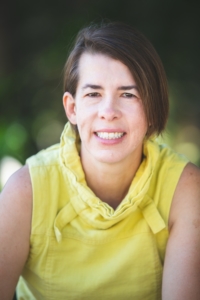The Revolution Began at Book Club
The world was on fire and men were to blame. Not all men, of course. The book club members said this reflexively, as though Marc still attended.
“Men aren’t empathetic enough,” Allison said and glanced at Joanna, who may or may not have voted for Trump. There had been whispers.
Joanna leaned in, “You know who should be in charge? Women!”
The book club members buzzed with increased boldness, and by the time Nina was gathering up the cheese plate, they had reached a consensus. The solution, like the ending of a good novel, was surprising and yet inevitable: Women must take over the world.
The book club met mostly in Kisha’s house. She had the largest living room and a husband obsessed with military history. For several months, they read books on coups and it was tedious. They watched The Great on Hulu, and while it was fun, they suspected they were wasting their time. Toward the end of one meeting, Michelle talked her way toward the truth—men had invented the coup and look where it had gotten humanity: bloated military budgets and endless wars. They must design something original, something more harmonious. “Huzzah,” the women shouted, though of course, no one threw their paper cups on Kisha’s floor.
Their first major decision was on how to define woman. The daughters—who were attending book club now that it was radicalized—were embarrassed. “Gender is a social construct,” they informed their moms.
“Oh, honey, we know,” the moms said, rolling their eyes. What did their daughters think they had been reading in book club anyway? Victorian novels?
The revolution, they agreed, would be inclusive.
And their communication strategy, fittingly enough, would rely on women’s literature—a genre secure enough to hold all their secrets.
What exactly made a book a woman’s book? Well, they had been schooled on this distinction by ex-boyfriends and ex-husbands and current husbands and fathers and brothers and colleagues and classmates and professors they barely remembered. It was simple, really. When a book was written by a man, it was written for everyone. When it was written by a woman, it was only for women. There were exceptions—biographies about famous men, books on presumably male-centric subjects like math or baseball, and of course, Atlas Shrugged.
The revolution’s first text was an expanded volume of What to Expect When You’re Expecting. Congratulations, you’re having a baby! Now look around. Don’t you want things to be different?
Why, yes. Yes, of course!
The details of the revolution were expanded on in memoirs, romances, cozy mysteries, vampire novels, and short story collections. Revolutionaries read about the end of men, surrounded by men, without the slightest risk of discovery.
Revolutionary titles dominated the best-seller lists. The Vagina series, published by Graywolf Press, was translated into 95 languages. The series covered the basics of community organizing and was recognizable by its bright yellow covers and Instagram-friendly fonts. There was The Angry Vagina, The Morose Vagina, The Didactic Vagina and most popular of all, The Shrill Vagina. The series editor—who had recently read Popinsho—wanted to include The Happy Vagina, but it was decided that the risk of attracting male readership was too high.
The revolution began on Tuesday. Trans women and cis women gathered in the streets with their children and friends, navigating their wheelchairs, marching in bands, setting up snack tables and book tables and gardening tables. Members carried signs about problems that must be solved—police violence, mass incarceration, water pollution, climate change, student debt, medical debt. A few leaders worried that the revolution wasn’t revolution-focused enough, but most felt that a diversity of perspectives was their strength. They could garden and govern at the same time.
In interviews, leaders spoke in warm, reassuring tones and smiled often. They explained this wasn’t a coup; it was a global reorganization. Men had had their chance to govern and now it was time to give someone else a turn. A few seats in government would be saved for men—the details could be worked out later—but going forward, the general trajectory of the planet would be nonbinary and female.
Reorganization parties were held in Kampala and Turku, Antigua and Seoul. The snacks were high-end, the dresses all had pockets, and everyone was invited. Coups had never been this much fun.
Book club still met in Keisha’s living room. The daughters had stopped attending, but Marc had returned and they had three new members, one of whom was a man. They ate good cheese, talked about their last book (Interior Chinatown by Charles Yu), and then voted on what to read next. Erin suggested The Upstairs House by Julia Fine, and no one wondered whether it was really universal enough.
Sari Fordham is a writer, professor, and environmental activists. Her memoir, Wait for God to Notice, narrates her childhood growing up in Uganda. Her work has been published in Brevity, The Chattahoochee Review, Baltimore Review, Passages North, among others. She can be found at www.sarifordham.com





